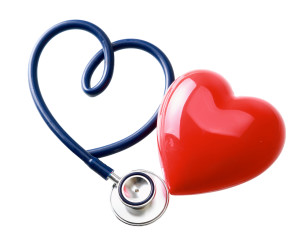Heart Health Awareness: Why It’s Important for Women
 Today is National Wear Red Day to raise awareness of heart disease and women.
Today is National Wear Red Day to raise awareness of heart disease and women.
Did you know that each year, heart disease claims the lives of more women then breast cancer and lung cancer combined? And that more women die every year from heart attacks than men? In fact, heart disease is the No. 1 killer of women in this country. What does that mean for you?
Consider this: heart disease is more likely to kill you than cancer, even breast cancer. And like cancer, heart disease does not discriminate—it’s just as likely to affect or kill young women, not just the older population.
What is heart disease?
The American Heart Association uses the term heart disease to cover several problems related to plaque buildup in the walls of the arteries, or atherosclerosis. As the plaque builds up, the arteries narrow, making it more difficult for blood to flow and creating a risk for heart attack or stroke.
Other types of heart disease include heart failure (where the heart doesn’t pump enough blood), an irregular heartbeat—arrhythmia—and heart valve problems.
What causes heart disease?
The usual suspects are the same for both men and women: high cholesterol, high blood pressure, smoking and/or being overweight. But certain other factors seem to play a bigger role in the development of heart disease in women, such as:
- Diabetes
- Metabolic syndrome—a combination of fat around your abdomen, high blood pressure, high blood sugar and high triglycerides
- Mental stress and depression
- Lack of physical activity
- Low levels of estrogen after menopause
- Pregnancy complications such as high blood pressure or gestational diabetes
All of these conditions can damage the lining and inner layers of the coronary (heart) arteries.
Signs and Symptoms of Heart Attack in Women
Believe it or not, many women don’t even recognize the signs of heart attack in themselves. The symptoms can be quite different from men’s, and they’re not always as dramatic as a feeling of tightness or pressure in the chest. And because it’s vitally important to get appropriate care as quickly as possible, women need to know these symptoms.
In addition to squeezing chest pain or pressure, both men and women may experience shortness of breath, sweating, pain in the shoulders, neck, arm, or jaw or a feeling of heartburn or indigestion, sometimes accompanied by nausea and vomiting, when a heart attack is coming on. Symptoms more likely in women include:
- Indigestion or gas-like pain
- Dizziness or nausea
- Unexplained weakness or fatigue
- Discomfort or pain between the shoulder blades
- Recurring chest discomfort
- A sense of impending doom
If you are experiencing any of these symptoms regularly, especially with sudden onset, call 911 immediately.
Next week, we will discuss tips for lowering your risk of heart disease.
